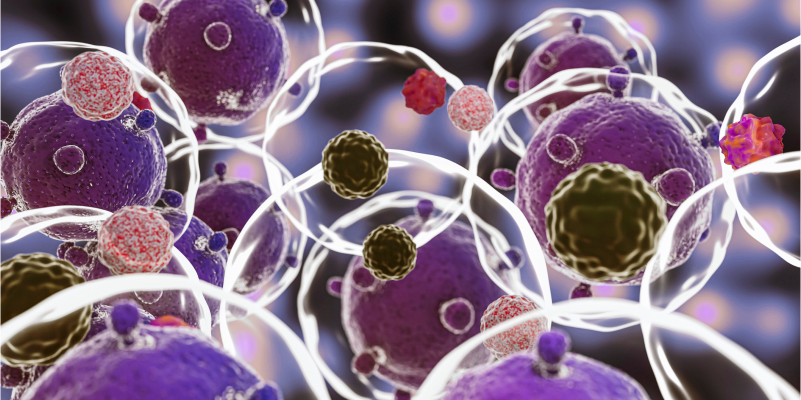
Diagnosed with cancer and undergoing treatment, individuals often have to face the overwhelming burden of cancer-related fatigue. This distressing and debilitating symptom can have a significant impact on their overall well-being and quality of life. Non-pharmacological interventions are crucial for managing fatigue, but they alone may not provide sufficient relief. Therefore, pharmacological approaches can also be indispensable in alleviating fatigue. In this article, we will explore various pharmacological interventions studied for cancer-related fatigue, examining their mechanisms, effectiveness, potential side effects, and considerations for use.
Stimulant medications, such as methylphenidate and modafinil, have emerged as potential solutions for cancer-related fatigue. By increasing alertness and reducing excessive daytime sleepiness, these medications aim to enhance energy levels and overall quality of life. Several randomized controlled trials have demonstrated the effectiveness of stimulants in improving cancer-related fatigue. However, it is essential to be aware of potential side effects, such as insomnia, loss of appetite, and anxiety, which need to be carefully monitored.

Psychostimulant medications, such as amphetamines, have also been explored for their potential benefits in managing cancer-related fatigue. These substances work by stimulating the central nervous system and promoting wakefulness. Although studies have shown positive effects on fatigue, caution must be exercised due to the potential for addiction and misuse. Psychostimulants should only be used under close medical supervision and with appropriate monitoring.
Antidepressant medications, including selective serotonin reuptake inhibitors (SSRIs) and tricyclic antidepressants (TCAs), have been investigated for their role in managing cancer-related fatigue. By modulating neurotransmitter levels, these medications can help alleviate fatigue, improve mood, and enhance overall well-being. While the evidence is mixed, some studies have shown potential benefits. However, it is crucial to carefully consider potential side effects, such as sedation, nausea, and sexual dysfunction, and balance them against potential benefits. Individual patient characteristics and preferences should guide the decision-making process.
Dexamethasone, a corticosteroid medication, has been studied for its potential in managing cancer-related fatigue. By reducing systemic inflammation, which is believed to contribute to fatigue, dexamethasone aims to alleviate this symptom. Some studies have shown promising results, with dexamethasone improving fatigue and increasing energy levels. However, long-term use of corticosteroids can have adverse effects, including weight gain, mood changes, and an increased risk of infections. Therefore, caution is required, and dexamethasone should be used under medical supervision.

Disrupted sleep patterns often contribute to fatigue in cancer patients. Recognizing this, melatonin, a hormone involved in regulating sleep-wake cycles, has been investigated for its potential benefits in managing cancer-related fatigue. Preliminary studies have shown that melatonin supplementation may reduce fatigue and improve sleep quality in cancer patients. However, further research is needed to establish its effectiveness and determine the optimal dosage.
In certain cases of cancer-related fatigue associated with anemia or low hemoglobin levels, interventions such as erythropoiesis-stimulating agents (ESAs) and blood transfusions may be considered. ESAs stimulate red blood cell production, while blood transfusions increase oxygen-carrying capacity. These interventions target the underlying physiological causes of fatigue and may provide relief in specific situations. However, their use should be carefully evaluated, considering individual patient characteristics, potential risks, and benefits.
When contemplating the use of pharmacological interventions for cancer-related fatigue, an individualized and holistic approach is essential. First and foremost, a thorough assessment should be conducted to identify the underlying causes of fatigue. This evaluation will guide the selection of appropriate interventions that effectively target the specific mechanisms contributing to fatigue.
Interaction potential with other medications and individual patient comorbidities should be considered when choosing pharmacological interventions. Close monitoring for potential side effects and appropriate adjustments to the medication regimen may be necessary to minimize any adverse outcomes.
Shared decision making between healthcare professionals and patients is crucial. Patients must be fully informed about the potential benefits and risks of pharmacological interventions. Additionally, their concerns, preferences, and treatment goals should be taken into account, promoting a collaborative approach to treatment.
Finally, it is essential to integrate pharmacological interventions into a comprehensive fatigue management plan that includes non-pharmacological strategies. Exercise, cognitive rehabilitation, and sleep management are vital components of fatigue management and can enhance the effectiveness of pharmacological interventions.
Pharmacological interventions have emerged as valuable tools for managing cancer-related fatigue when non-pharmacological approaches alone may not be sufficient. Stimulant medications, antidepressants, dexamethasone, melatonin, and other interventions offer potential relief and improvements in the quality of life for cancer patients experiencing fatigue. However, careful consideration of potential side effects, interaction risks, individual patient characteristics, and preferences is crucial when selecting and implementing pharmacological interventions. By integrating pharmacological approaches into a comprehensive fatigue management plan, healthcare professionals can help alleviate the burden of cancer-related fatigue and enhance the well-being of patients on their cancer journey.

Dr. Yakov Freed

Dr. Yakov Freed